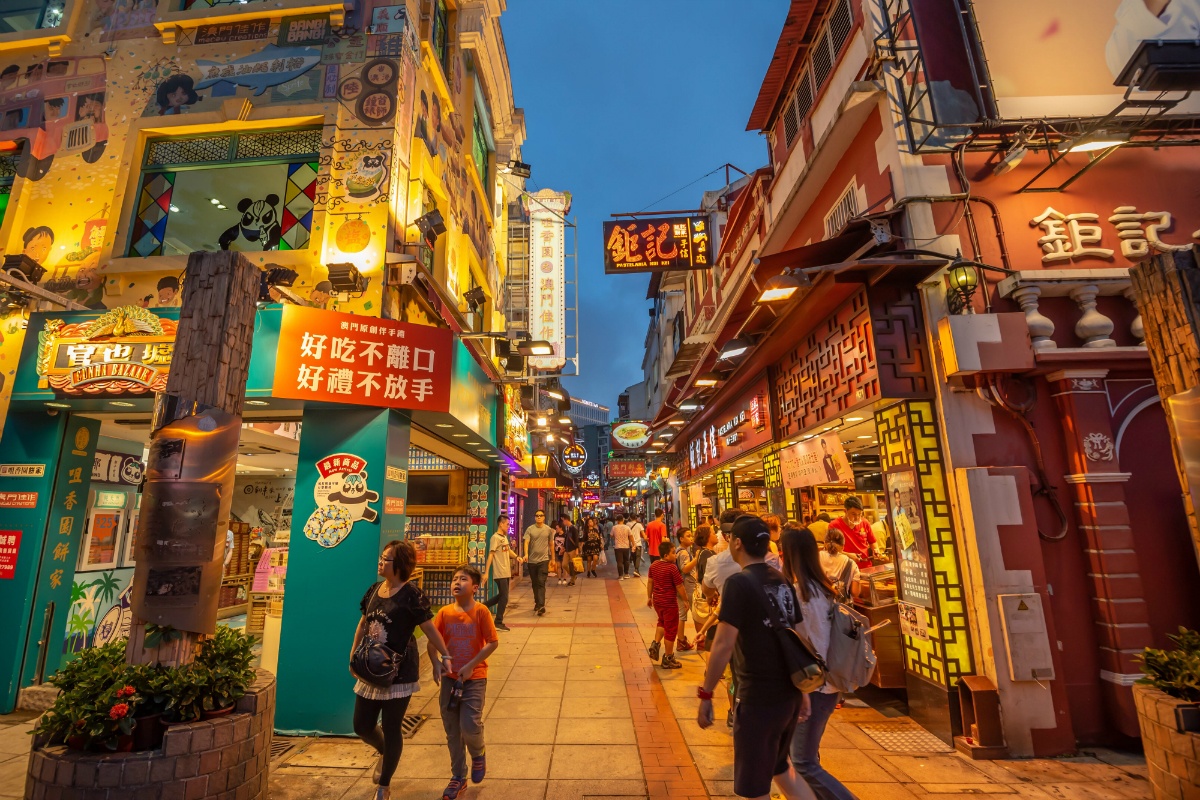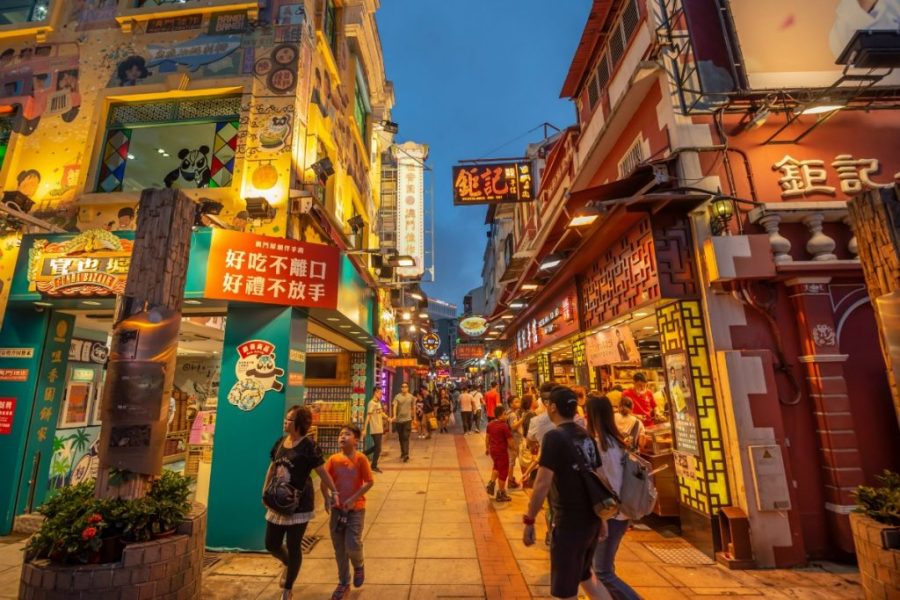Macau is in a technical recession after gross domestic product (GDP) fell by 1.8 per cent year-on-year in real terms in the second quarter and by 3.2 per cent in the first quarter, according to figures released by the Statistics and Census Bureau (DSEC) on Friday.
It’s the first time since 2016 that the recession has been mentioned.
A technical recession is usually identified when real GDP falls year-on-year for two successive quarters. Customarily, a recession is a situation when demand is sluggish, real output is not rising, and unemployment is rising. A recession is not as severe as a depression.
A DSEC statement said that “the economic downturn was mainly due to a year-on-year decline in gross fixed capital formation” (GFCF), which measures the net increase in fixed capital.
According to the statement, external demand continued to slow down — exports of gaming services fell by 0.8 per cent and exports of goods dropped by 24.4 per cent. Domestic demand decreased by 6.1 per cent, dragged down by a 25.0 per cent year-on-year drop in GFCF.
GDP in the second quarter amounted to 106.6 billion patacas, a 1.5 per cent drop in nominal terms, based on expenditure-based GDP at current prices.
Investment in fixed assets continued to decline on account of decreased construction projects. GFCF dropped owing to a 30.1 per cent fall in construction investment; equipment investment, however, rose by 9.1 per cent.
The statement underlined that in view of the high base of comparison in the second quarter of 2018 caused by the large investment of the local government in the Macau border checkpoint of the Hong Kong-Zhuhai-Macau Bridge (HZMB), public construction investment plunged by 51.6 per cent in the second quarter this year; in addition, equipment investment fell by 35.0 per cent.
Meanwhile, private investment slid further by 19.3 per cent year-on-year following a decline in investment in large-scale construction projects and a drop in the number of new residential projects; construction investment went down by 25.1 per cent while equipment investment increased by 17.4 per cent.
Private consumption expenditure and government final consumption expenditure (GFCE) rose by 2.2 per cent and 5.7 per cent respectively, “offsetting part of the decrease resulting from the economic slowdown,” the statement said.
GFCE is an aggregate transaction amount representing government expenditure on goods and services that are used for the direct satisfaction of individual needs or collective needs of members of the community.
GFCE recorded sustained growth, up by 5.7 per cent year-on-year, compared to the 4.1 per cent rise in the previous quarter, the statement underlined.
Imports and goods and services fell by 0.8 per cent and 13.7 per cent respectively.
The implicit deflator of GDP, which measures the overall changes in prices, increased by 2.4 per cent year-on-year.
“Consumer sentiment remained cautious amid uncertain external economic environment, the statement pointed out.
According to the Macau Post Daily, the statement said “the services trade showed stable performance”, pointing out that despite a drop of 0.8 per cent in exports of gaming services, total exports of services inched up by 0.8 per cent year-on-year in the second quarter. However, imports of services fell by 13.7 per cent year-on-year.
For the first half of 2019, the economy shrank by 2.5 per cent year-on-year in real terms. Private consumption expenditure and government final consumption expenditure rose by 2.2 per cent and 5.0 per cent respectively year-on-year. Investment dropped by 28.8 per cent. Exports of goods dropped by 12.5 per cent while imports of goods increased by 0.6 per cent. Exports of services rose by 0.2 per cent, with exports of gaming services dipping by 0.7 per cent; meanwhile, imports of services went down by 17.5 per cent, the statement pointed out.






